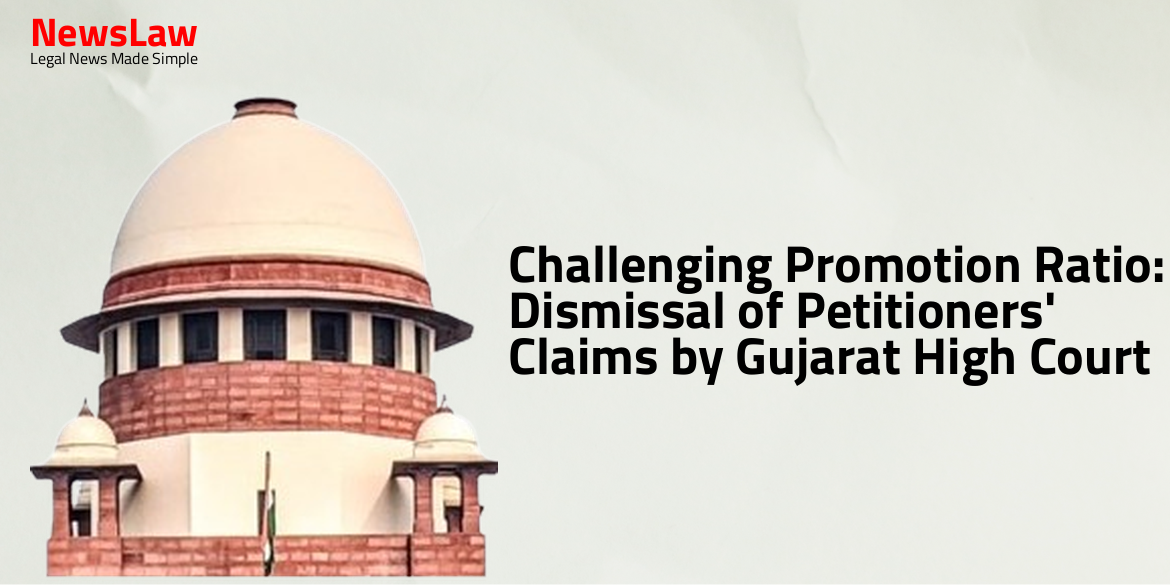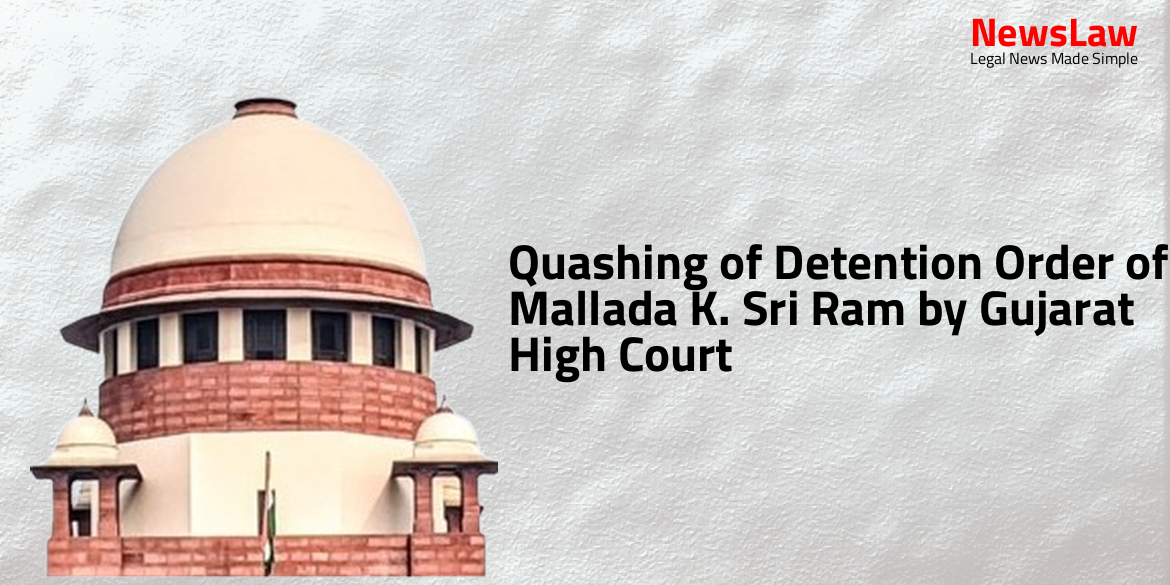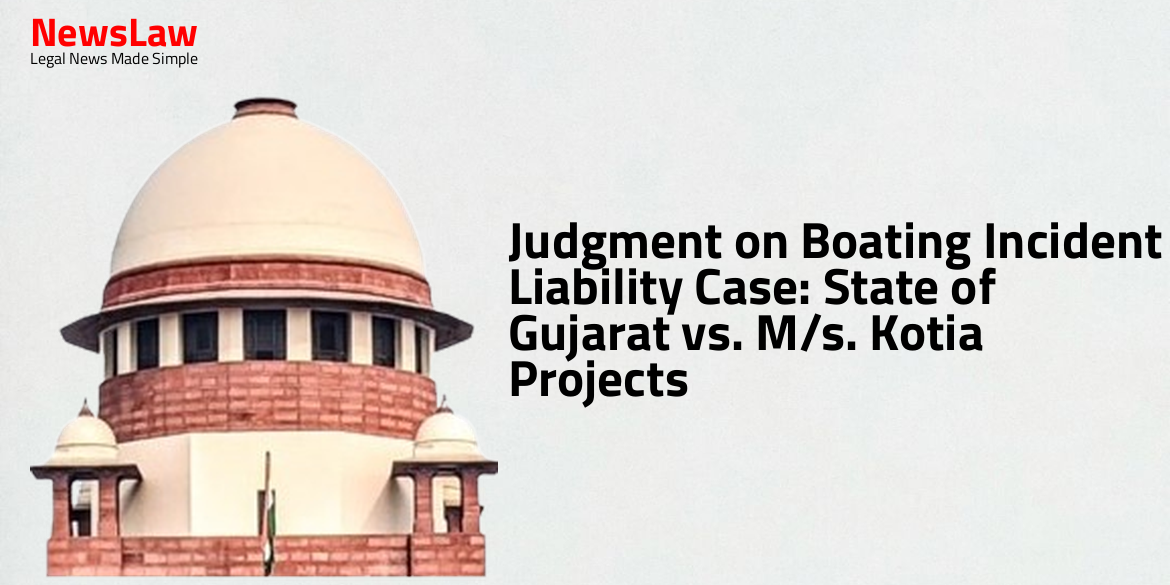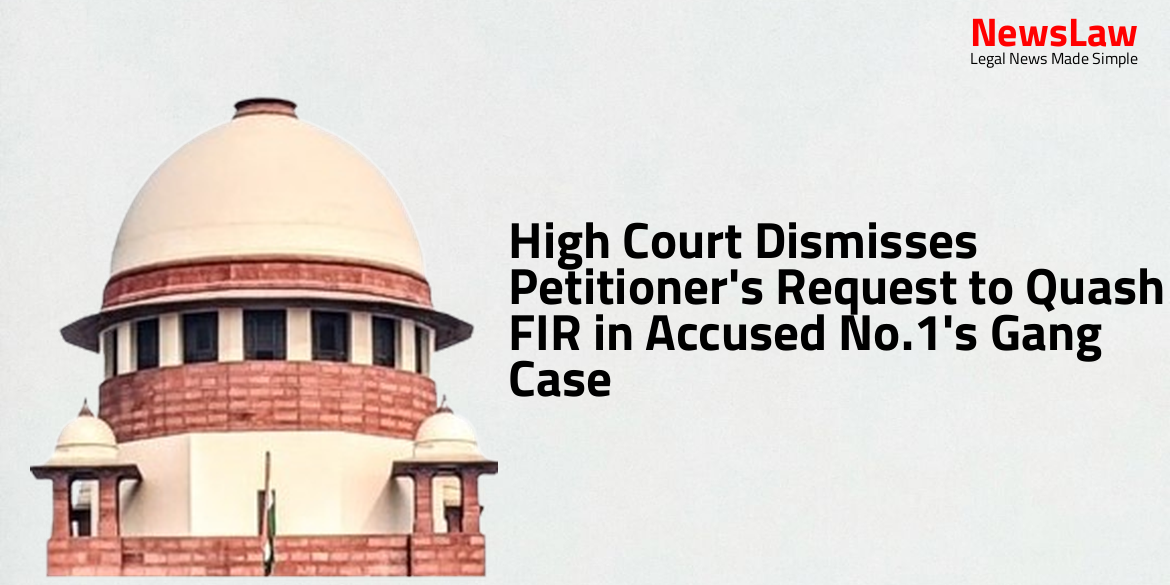In a recent case before the Gujarat High Court, the claims made by the petitioners regarding the promotion ratio were dismissed. The Court’s decision addresses the concerns raised by the petitioners about the promotion criteria and its impact on various cadres. Stay updated on the legal developments surrounding this important case.
Facts
- A writ petition was filed challenging the ratio of 7:4:1 for promotion to the post of Deputy Executive Engineer (Civil) as irrational and arbitrary.
- The petitioners argued that the ratio treated unequals as equals by considering Assistant Engineers, Additional Assistant Engineers, and Overseers for promotion.
- The Assistant Engineers held a Bachelor of Engineering (Civil) degree with no pecuniary limit for civil works, while Additional Assistant Engineers were Diploma Engineers with a limit of Rs. 10 lacs and Overseers had a limit of Rs. 25,000.
- The Assistant Engineers faced injustice and delayed promotions, leading to some serving until superannuation.
- The State Government maintained the 7:4:1 ratio in new Rules published on 8.6.2016, despite the petition.
Issue
- The issue in question involves the interpretation of the Constitution of India.
- The case hinges on determining whether a substantial question of law arises from the interpretation of the Constitution or any order made under it.
- The focus is on the legal implications and the constitutional validity of the matter at hand.
Arguments
- The petitioners challenged Rule 2(A)(a)(ii) and Rule 2(A)(a)(iii) of the Narmada Water Resources, Water Supply and Kalpsar Department Recruitment Rules, 2016.
- The contention of the petitioners is that different cadres are being treated equally for promotional posts, which is in violation of Articles 14 and 16 of the Constitution of India.
- The petitioner’s counsel argued that the cadres of Additional Assistant Engineers and Overseers should not be feeder cadre posts for promotion to Deputy Executive Engineer as their qualifications and duties differ from Assistant Engineers.
- The Rules prescribe different work experience for each cadre to appear for a common professional examination, aiming to address unfair advantage.
- The petitioners also expressed concern about the narrow promotional avenues for Assistant Engineers due to the fixed ratio of promotions.
- The State Government’s advocate argued that the Rules provide avenue for promotion in a fixed ratio and different cadres are not treated equally as they have specific qualifications and responsibilities.
- It was asserted that a previous court judgment had addressed a similar challenge to the promotional ratio, and therefore, the present petitions may not be maintainable.
- The counsel for petitioners pointed out discrepancies between the new Recruitment Rules and the Gujarat Civil Services Classification and Recruitment (General) Rules, 1967.
- The State Government’s advocate emphasized the State’s authority to frame recruitment rules and defended the promotion criteria based on experience and qualifications.
- Various specific examples were provided to illustrate the different competencies and responsibilities among the cadres of Assistant Engineers, Additional Assistant Engineers, and Overseers.
- The State’s advocate contended that the judgments cited by the petitioners were not directly applicable to the present case.
- Additionally, specific government resolutions regarding the competencies of Overseers and Additional Assistant Engineers were presented to support the differentiation among the cadres.
- The argument highlighted the disparities in qualifications and expertise among the cadres based on their educational background and experience.
- The actual duties and work capacities of the different cadres were emphasized to support the rationale behind the promotional criteria set forth in the Rules.
Analysis
- Special Civil Application No. 3199 of 2023 challenges Rule 2(a)(i) and 2(a)(ii) of the Roads & Building Department Recruitment Rules, 2017.
- The Rules specify the criteria for appointment to the post of Deputy Executive Engineer (Civil) Class II in Gujarat Engineering Services.
- Appointment can be made through promotion or direct selection.
- For promotion, candidates must have specific years of experience in different cadres and pass prescribed examinations.
- The Rules allow for promotion of a person with lesser experience if necessary in the public interest.
- Competitive examinations for promotion will be held by the Gujarat Public Service Commission.
- The rules aim to ensure efficient and qualified individuals are appointed to the post of Executive Engineer (Civil) Class II.
- The Overseers cadre is a promotional post of the Technical Assistant (Class-III) and the Work Assistant (Class-III) with a minimum educational qualification of Diploma in Civil Engineering.
- Promotion to the post of General Recruitment Rules is prescribed by the State Government.
- The rule of maintaining a ratio of 7:4:1 for promotion to the post of Deputy Executive Engineer (Civil) Class-II aims to prevent stagnation in feeder cadres.
- Different qualifications and criteria are prescribed for different cadres to be eligible for appearance in the professional examination required for promotion.
- The State Government has the power under Article 309 of the Constitution of India to frame appropriate Rules for appointment to various posts.
- The impugned Rules provide for a defined ratio, experience, and professional examination for promotion to the post of Deputy Executive Engineer (Civil) Class-II in the Gujarat Engineering Services.
- There is no undue or unfair advantage to any of the feeder cadres in the promotion process.
- The promotions given in the prescribed ratio are not in violation of any General Rules prescribed by the State Government.
- The criteria for eligibility to sit in the professional examination for promotion to Deputy Executive Engineer (Civil) Class-II vary according to the feeder cadre posts.
- The nature of duties and responsibilities with promotional posts should have a reasonable relation to the classifications made.
- The petitioners were aware of the Rules and ratio when they joined the services.
- Classification is necessary to balance the equality principle based on the nexus for making such distinctions.
- The judgment and order of the Court in Special Civil Application No 16099 of 2016 upheld the 7:4:1 ratio under the Rules, 1979.
- The challenge to the ratio under the new Rules, 2016 and Rules, 2017 was dismissed.
- The judgments relied upon by the petitioners’ counsel are not applicable to this case based on the court’s observations.
Decision
- The impugned Rules were found not to be discriminatory or violative of Articles 14 and 16 of the Constitution of India.
- No costs were awarded in this case.
- The writ petitions were dismissed as they were lacking in merits.
- The notice was discharged.
Case Title: NITINKUMAR VAJUBHAI GAJERA Vs. STATE OF GUJARAT
Case Number: R/SCA/3199/2023



